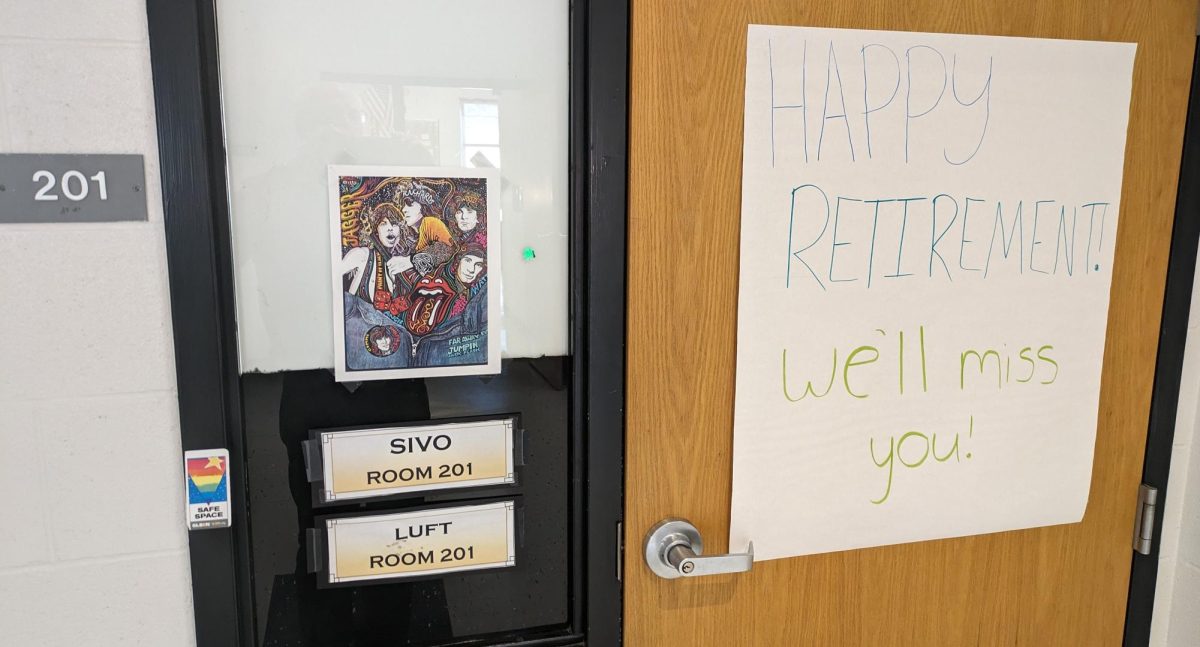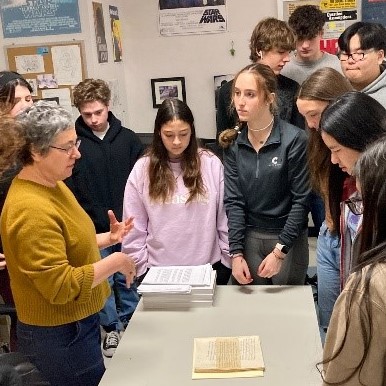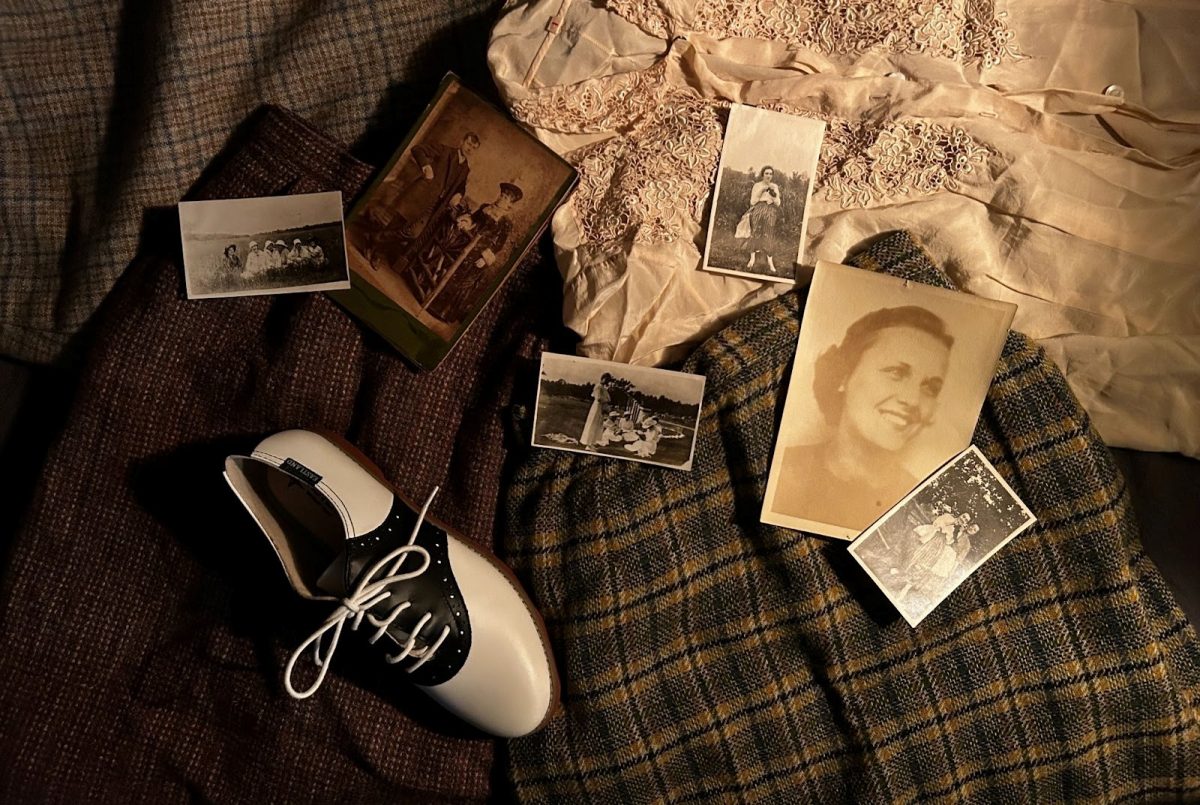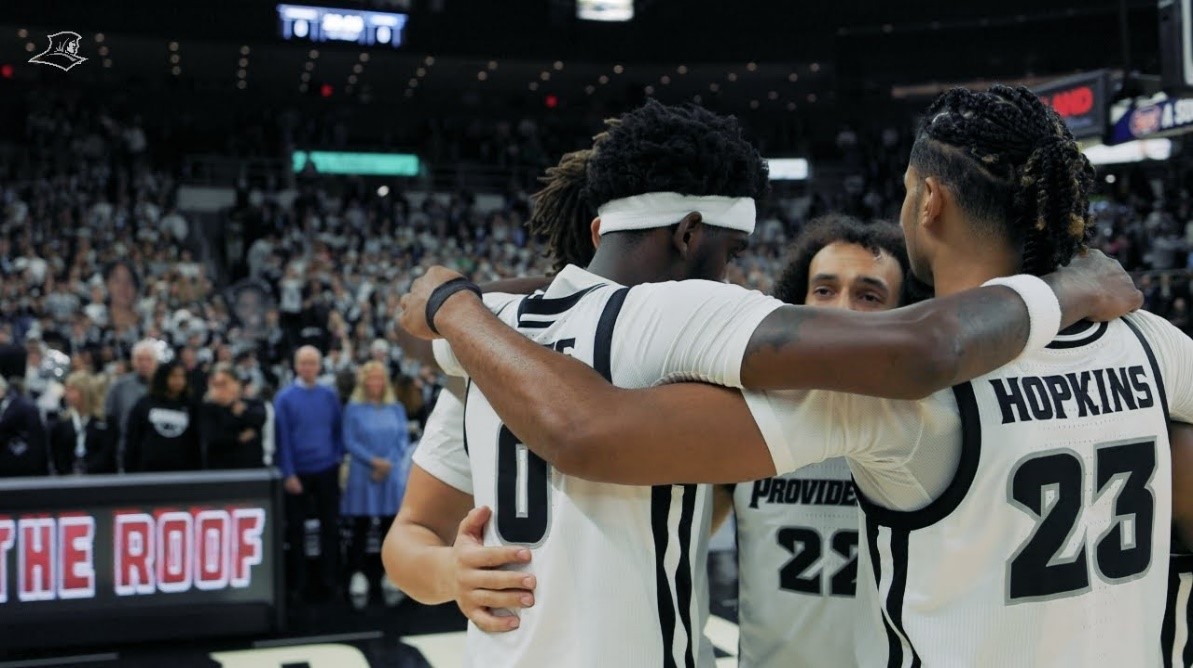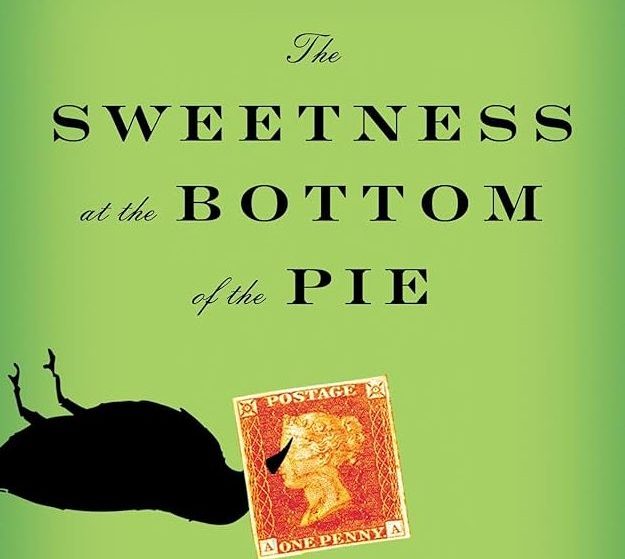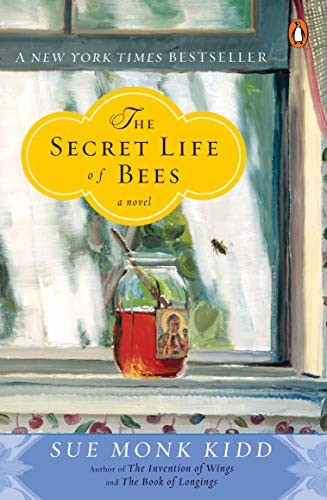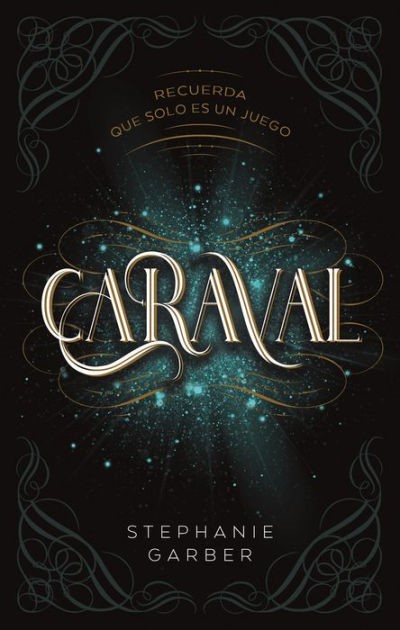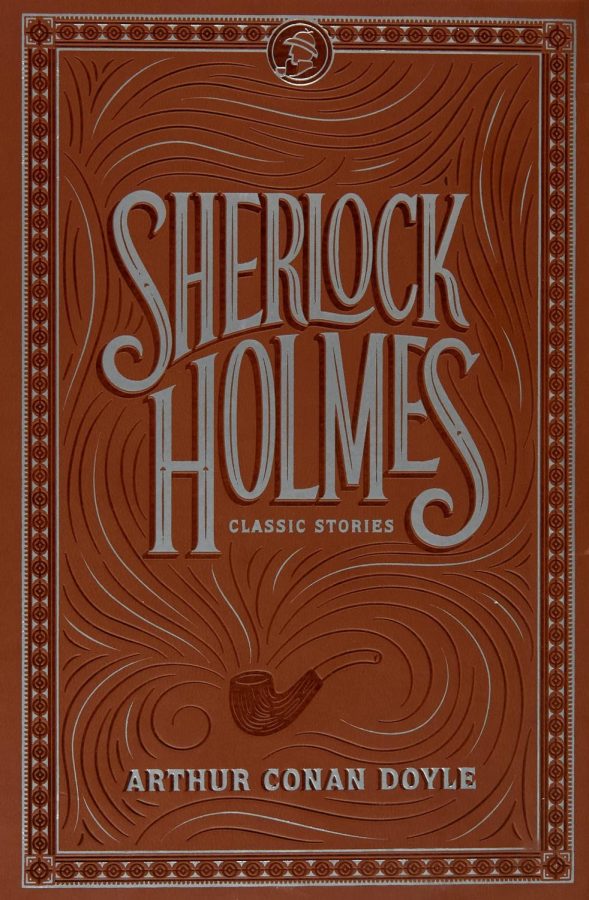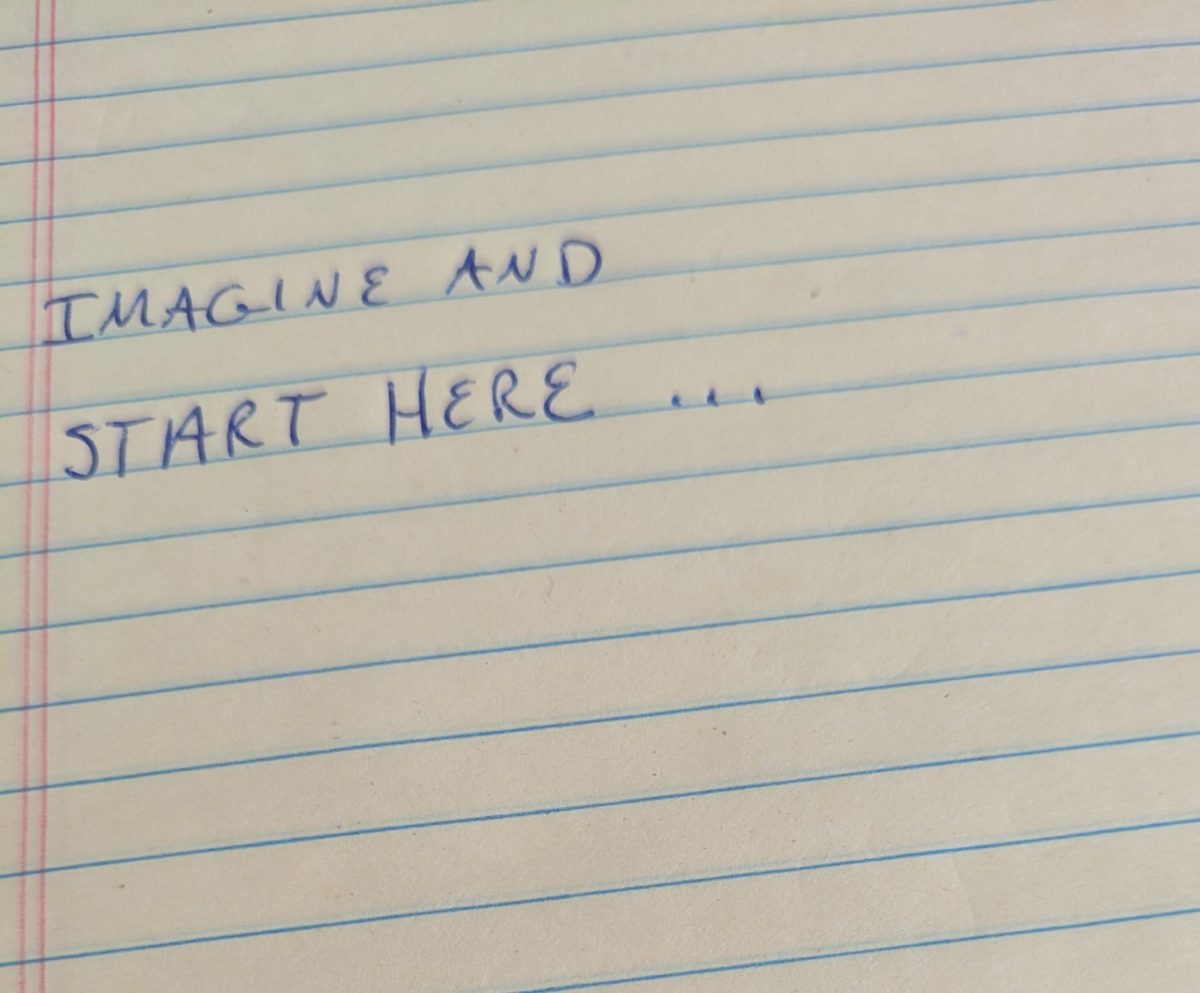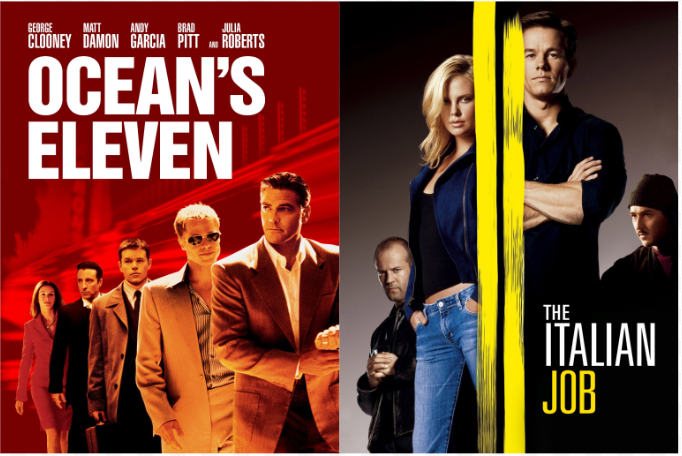What? No heist movies?! Let me explain.
Movies often have more than one “story” within their framework. Blake Snyder, formerly one of Hollywood’s most acclaimed spec screenwriters, calls them the A story, B story, C story, and so on. The A story is generally the focus of the movie, what’s impacting all of the characters and driving the movie forward.
Often, the B story is a relationship of the main character’s that shapes the story and impacts the A story. In “heist” movies, the A story is usually the heist itself because it is the focus of the movie. But the subject of the B story is often actually what is motivating character actions in relation to the A story.
In this installment, we’ll look at two examples. Disclaimer: there will be some spoilers.
Ocean’s 11
Ocean’s 11 (2001) was directed by Steven Soderbergh and written by Soderbergh and Ted Griffin. The film stars George Clooney as Danny Ocean, a thief fresh out of prison. He and comrade Rusty (Brad Pitt) put together a crew for a heist on a scale no one’s ever seen. They’re planning to rob Terry Benedict (Andy Garcia), the famous millionaire who owns several casinos in Las Vegas. Oh, and Benedict also happens to be involved with Danny’s ex-wife, Tess (Julia Roberts).
During the planning stages of the heist, Rusty sees Tess at one of Terry’s casinos. He confronts Danny about this, and Danny admits the real reason for his investment in the heist.
In Ocean’s 11, it seems like Danny’s motivation is just to rob Terry Benedict for the $165 million stored in his casino vault, but his real motivation is to win his wife’s heart back. Therefore, his motivation to carry out the heist in the A story isn’t money, the thrill of doing a heist, or something else trivial, but instead, love. There’s your B story.
The Italian Job
The Italian Job (2003) was directed by F. Gary Gray and written by Gray, Troy Kennedy Martin, Donna Powers, and Wayne Powers. The movie follows a group of thieves trying to pull off a heist in Italy. The group is headed by John Bridger (Donald Sutherland), who is about to retire and hand the reins over to Charlie Croker (Mark Wahlberg).
Within the first few minutes of the movie, we can tell pretty clearly that John and Charlie have a father-son relationship. John has taken Charlie under his wing and trusts him with leading the job.
Under Charlie’s leadership, the group successfully pulls off the heist and escapes with the stolen gold. But one of the members of the group, Steve (Edward Norton), betrays the others, takes the gold for himself, and runs. In the process, John is killed.
So the goal of Charlie and the others now becomes to steal the gold back from Steve.
Charlie’s dramatic need is for revenge. Why does he want revenge? Because Steve killed John. Charlie loved John like a father. Therefore, as characters in “heist” movies often say, “it’s not about the money”—it’s about something greater: love.
Summary
Of course there are probably exceptions to this idea. And “heist” movies aren’t necessarily romance films by any means. But it’s important to realize that characters in these films aren’t always motivated by money. And a lot of times, that motivation is love.
Complex stories like these make outstanding movies. If Ocean’s 11 or The Italian Job are on TV, I’m there.



